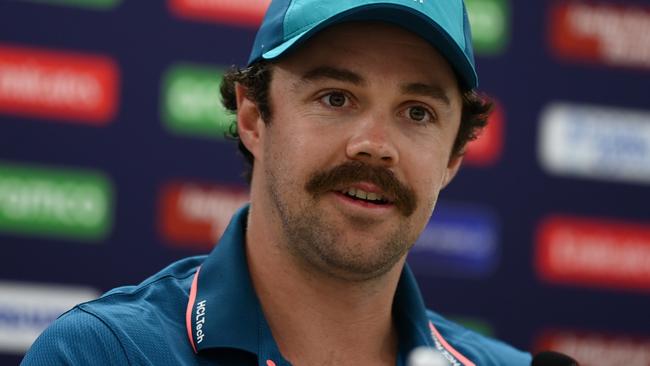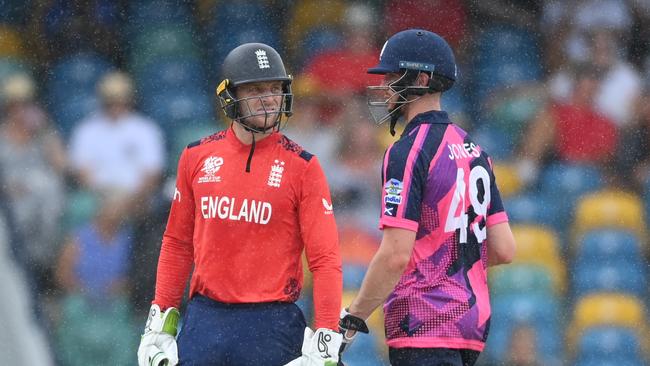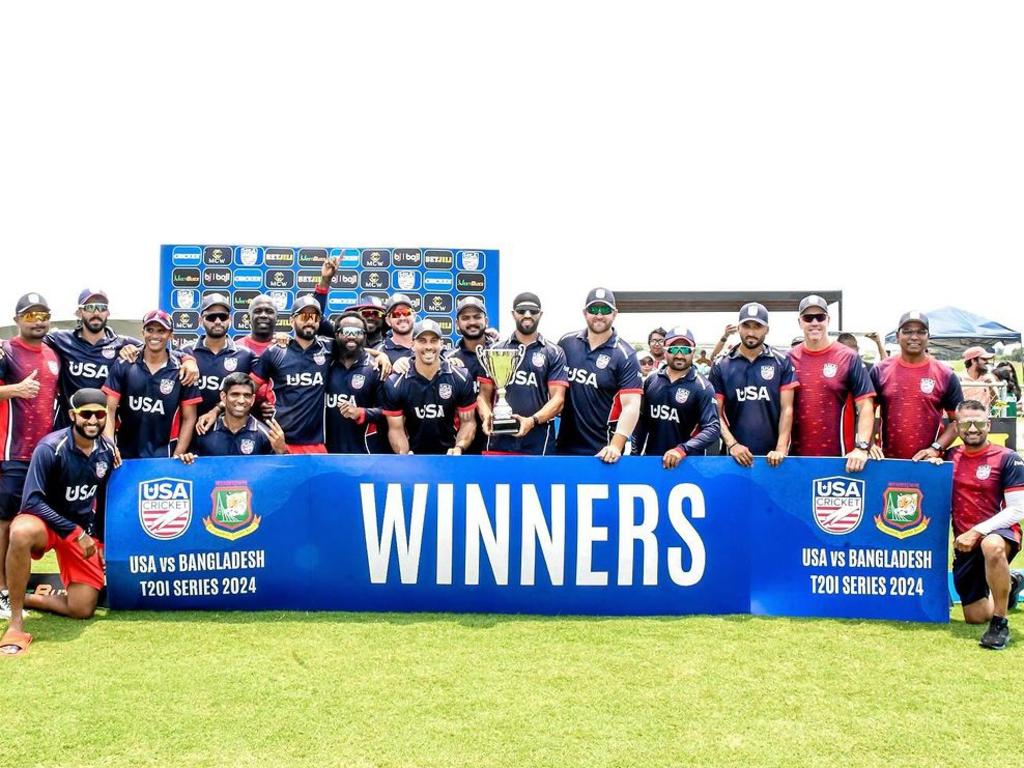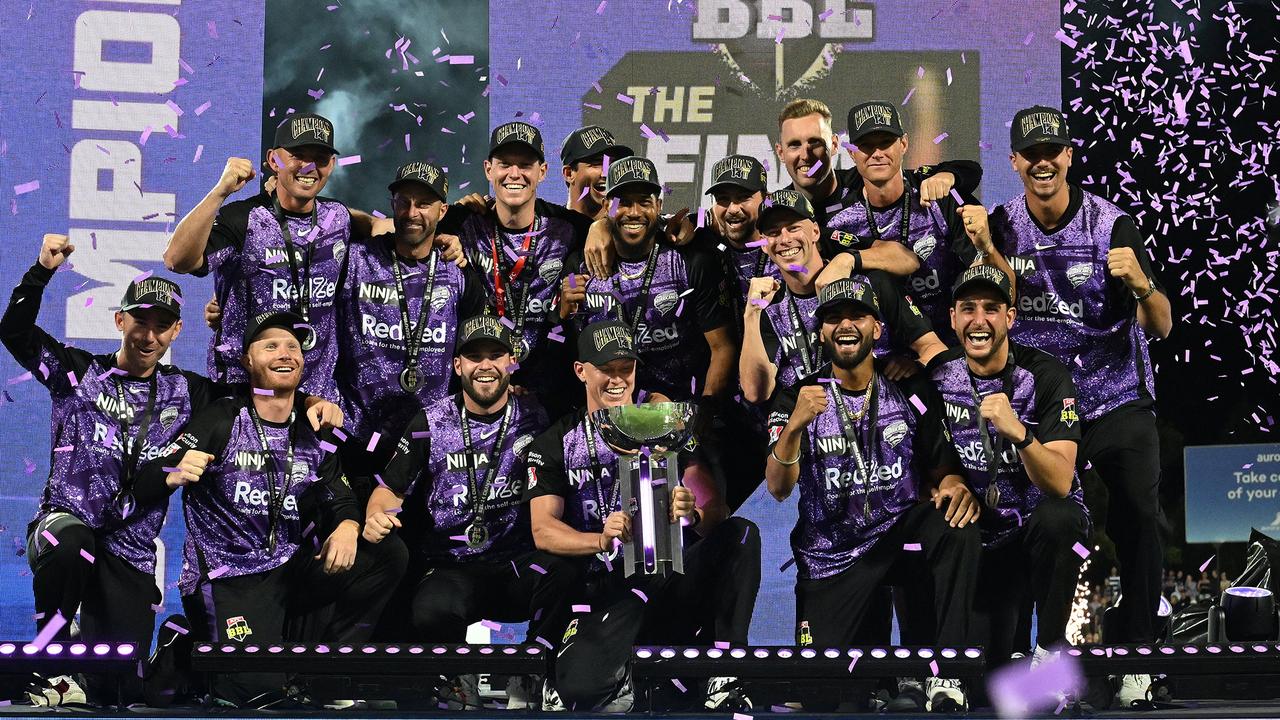Why Australia’s players have embraced the Bajan way of life to swot away jet lag and get orientated
The cliche of Barbados being so laid-back that it’s horizontal will be music to the ears of Australia’s T20 cricketers. Most of the players in the squad only arrived in Barbados in batches over the previous 30-odd hours, some enduring 38-hour journeys to get there.

Chillin’. Barbadians take a lot of pride in Chillin’. It’s not just their way of life, it’s their national identity. They like talking about it as much as they love indulging in it. The days are genuinely only 24 hours long here like elsewhere but, somehow, they always feel more stretched out in this gorgeous island. Like the clock itself is a necessary evil.
The cliche of Barbados being so laid-back that it’s horizontal is actually the best description. And you even hear it in their distinctive accent. It is unlike the singsong prose of the Trinidadians or the emphatic tones of Jamaican Patois. It’s somewhere in between but does carry a strong flavour of becalming charm, more than any other tongue across the English-speaking Caribbean Islands.
And this tendency, which is nearly a penchant, for Chillin’ also manifests itself in the daily Bajan way of life. Buses here have no timetables. They come when they do. You just have to be ready and hope one comes around when you need it most.
Even the downtown area carries a sleepier air than most other times now that the official tourist season is over and the last of the big cruise ships have left the Bridgetown Harbour, only to now return in October.
You see it in a different light in Oistins, the coastal village in the parish of Christ Church that has developed a reputation of being a must-go spot for the local fare. Rows of concrete shacks are busy selling a variety of grilled and fried fish, with Barbados’s national dish, the flying fish, the most popular. I am directed to one of these, Pat’s Place, where a hungry queue has already lined up, with the ladies behind the little counter extremely busy sorting out the orders. A man, meanwhile, is working the barbecue all by himself, marinating and grilling the different types of fish, which includes dolphinfish or Mahi Mahi.

The system, though, is quite remarkable here. There’s a big group ahead of me, some four men and eight women, and they’re placing their orders independently.
At Pat’s, the way it works is you order your fish and your mains, and then you wait till you’re served your food. Only then is the next customer even allowed to place their order. As a result, it takes some 80 minutes before you’re done with lunch, but it’s totally worth it.
As you sit back, without a worry in the world, polishing off the last bit of flying fish with an extra dollop of the Bajan Pepper Sauce, which is nowhere close to the tongue-scorching peppers you find in Trinidad, you are sucked into the whole Bajan ideal of chillin’ as well.
The only items on the menu that do get served quickly are the rum punches. In some places, within a minute of you ordering one. These are, of course, recommended for after the sun sets, owing to their deceptive potency.
The Australian T20 World Cup squad, to their credit, have embraced the Bajan way, too, to an extent since landing here after a couple of warm-up matches in Trinidad.
Among the first activities they indulged in was a team-bonding session atop a catamaran that cruised over the Caribbean Sea on Saturday evening, with the entire set of players sitting together on the roof of the boat and watching the sun slowly go down over the serene waters. Most of the players in the squad had only arrived in batches over the previous 30-odd hours, some enduring 38-hour journeys to get here, while Glenn Maxwell and Mitchell Starc took 60 hours to travel all the way from Australia to the Caribbean.
It’s a strange lead-up to the World Cup, with only four of the 15-member squad having had more than a single hit as they lead-up to their T20 World Cup opener against Oman at the Kensington Oval this morning. The others will have to make the most of the practice they got at the 3Ws Oval on Monday in what was an all-in session.
So, it wasn’t surprising to hear Travis Head talk about how it hasn’t felt like a World Cup yet for him. For, he’s right. Maybe it’s the format for the biggest T20 World Cup, with 20 teams in the main draw.
Or maybe everyone is just too spread out. Perhaps it’s a case of Barbados not being ready yet to shake itself up and stay active and energetic during what is its annual siesta period.
There was, of course, a lot of energy and verve when everyone in the squad and the coaching staff drove up the hill to the University of West Indies campus for a fully fledged nets session on Monday. There was also a lot of bonhomie and camaraderie, so important at the start of what will be a slightly relaxed but mostly gruelling month in the Caribbean.
It seemed mainly like a clearing up your jet lag session with every one of the 15 batters trying to smash the leather off the ball. Most of them looked in great touch, too, with special mentions for Head, a fresh arrival post the IPL, and Tim David looking the most destructive. The bowlers had a go, too, with the new-ball operators working tirelessly on the many variations that will be expected of them to deliver.

Mitchell Marsh didn’t make the most promising of starts to his session being bowled by both Starc and Pat Cummins. But he made up for it later by not only beginning to clear the fence but also rolling his arm over off a full run, which he hasn’t been able to do for a few months.
The captain also seemed to be in charge of keeping the energy levels up, which he did by cheering each one of his teammates up repeatedly with vocal acknowledgment of every shot. This resulted in the ball flying into orbit around the oval.
Marsh even extended his captaincy skills to me after walking up for a quick greeting post his first bowl in the nets.
After exchanging pleasantries and a couple of jokes, the discussion turned towards my hair, where I lamented about the harsh effect the humidity was having on my mane. To which he went, “Oh it still looks wonderful” before turning around as he started walking away and going, “I know that’s what you wanted to hear. See, now that’s leadership.” Full marks, Mitch.
While you’d expect the pace to pick up – at least from a cricket sense – once the Aussies officially begin their quest for the treble against Oman, we might have to wait till the weekend for it to get closer to fever pitch, when they face England, before leaving for a few quick stopovers in other islands. Maybe by then Marsh and his team, too, might have had their fill of Barbados-style Chillin’ and will be keen for a bit of a move on.






